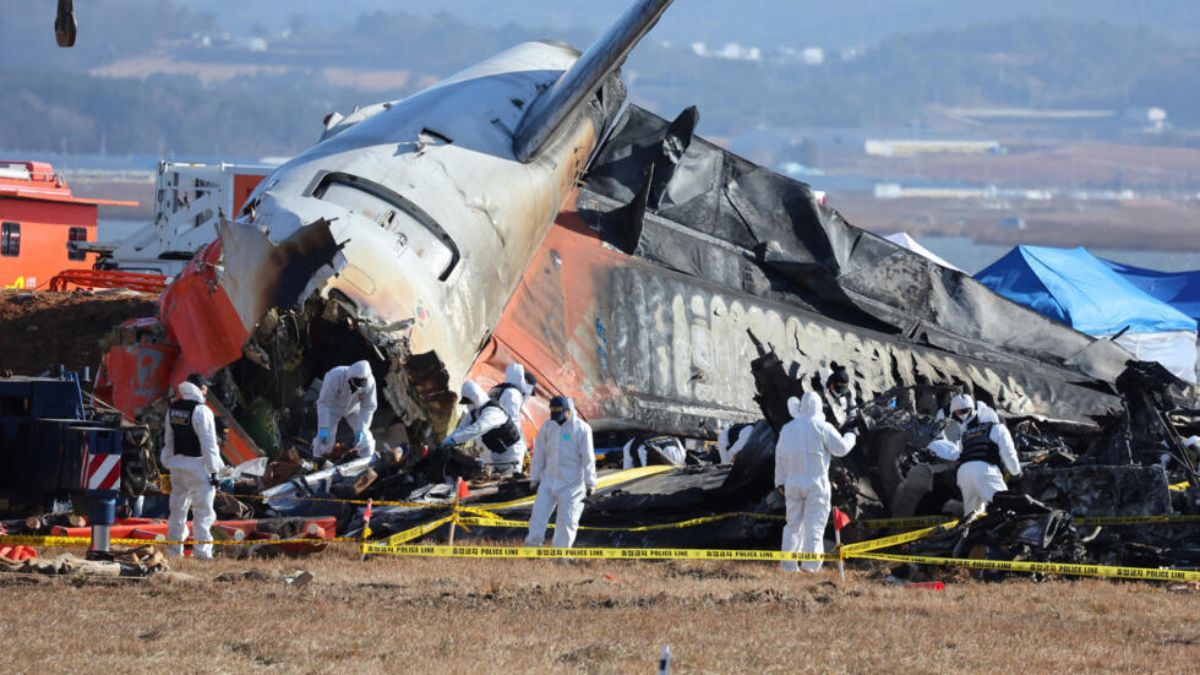South Korea entered a solemn period of mourning as officials began releasing the bodies of victims from the Jeju Air Flight 2216 crash to their families on Tuesday, December 31. The tragic incident claimed the lives of 179 passengers and crew, leaving the nation grappling with one of its worst aviation disasters in recent history.
The Jeju Air Boeing 737-800 was en route from Thailand to South Korea when it issued a mayday call and attempted an emergency landing in Muan. The plane belly-landed, crashed into a barrier, and erupted in flames. Only two flight attendants survived, rescued from the charred remains of the aircraft.
Investigators, including U.S. experts from Boeing, have arrived at the crash site to assist in analyzing the black boxes recovered from the wreckage. Authorities are working to uncover the cause of the crash as Acting President Choi Sang-mok called for immediate and sweeping reforms to air safety systems.“Today marks the final day of 2024,” Choi stated during an address, urging the nation to reflect on the loss.
Flags across the country are flying at half-mast as South Koreans observe a seven-day mourning period. Vigils are being held nationwide, with citizens uniting in grief and solidarity.
The crash underscores the importance of rigorous safety measures in aviation, as families of the victims seek answers and closure amidst the year-end tragedy.

